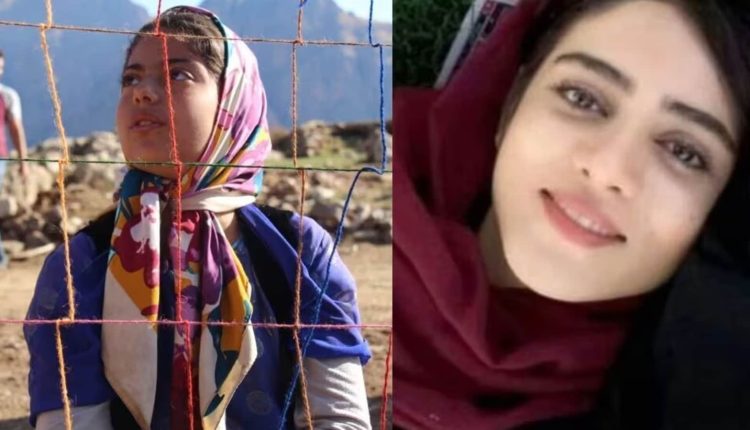Here, Ruud Gullit is one word and football a delight, a vehicle for social messaging and a beacon of hope. In this remote hamlet on the Kurdistan mountains in western Iran Hima, “The Blue Girl” in Keivan Majidi’s eponymous 2020 debut feature film, lives.
Hima wears blue, the colours of her team Esteghlal. It may not be a coincidence that Italy is her favourite national team; in a wall full of posters of male football stars, it is on Gianluigi Buffon that Hima’s hand rests briefly. It may or may not be a coincidence again that the only poster of Diego Maradona has him in the deep blue Argentina strip. But it would be stretching things to assume that Tuesday’s screening in Kolkata, as part of 2nd Bulls Eye – International Sports Film Festival, around the time Esteghlal were playing Sepahan in the Iranian top tier was anything but a coincidence. (Esteghlal won 1-0 and are in pole position in the Iran Pro League, three points ahead of Persepolis).
Solidarity with Sahar
It is never mentioned but everything about Hima is a tribute to Sahar Khodayari. The real life ‘Blue Girl’ was also an Esteghlal fan. She set herself on fire and died from burns in September 2019 on being told that she could face six months in jail. Her crime? Dressing as a man to sneak into Tehran’s Azadi Stadium to watch her club play UAE’s Al Ain six months earlier and being caught. She was 29.
Khodayari’s death became a touch-paper for protest in Iran where women’s have been banned from football stadiums since the Islamic Revolution in 1979.
“Some issues can be resolved simply but we turn them into deep social scars for which we have no answer to history,” parliamentarian Fareed Mousavi was quoted as saying by “The New York Times” after Khodayari’s death. “We need to rectify these unjust discriminations before it’s too late.”
Esteghlal’s tweeton Khodayari gained a lot of traction and in October 2019, under pressure from FIFA, around 4000 women were allowed into Azadi Stadium for theWorld Cup qualifier between Iran and Cambodia. #BlueGirl gave a fillip to the fight to “let the other half in” started by the Open Stadiums movement from 2005. That was one year before Jafar Panahi’s cinematic masterpiece “Offside” released.
Shorn of bitterness
Open Stadiums campaigned for equal access to the stands during the 2018 World Cup. In “The Blue Girl”, that tournament in Russia spurs the children’s desire to build a pitch on a terrain too hilly for one. Even as the film details their efforts it shows the village seeing on television women without hijab enjoying the World Cup from the stands. Again, nothing is said.
The ban on women at football stadiums too isn’t mentioned but when Jamal, aka Ruud Gullit, says they are welcome to come and watch the first game on the new pitch, he uses a public address system. Jamal wears his curly mop like Jamshed Nassiri, the Iranian striker who has made India his home, but is called Gullit because Holland is his team. He is the only adult in the pack, its Sam Mussabini (‘Chariots Of Fire’, with which the 20-film festival opened on Sunday) showing children the way. Jamal is also the only one old enough to know of landmines in a region that borders Iraq.
Hima, the narrator and active participant with three girls in the arduous process of building a pitch on a mountaintop, points out how difficult it is for girls to play football. Like with Jamal telling Vorya Majidi, the young boy with magic in his feet, that sometimes even hard work is not enough to make it as a professional, Hima’s comment is shorn of bitterness.
With a lightness of touch, Majidi subtly deals with serious issues. The film has no twists, no bad guys and ends with the children achieving their aim. Football respects all countries, why can’t governments, asks Hima. The girls don’t play but as a game begins on the pitch they helped build and the credits roll, applause breaks out.
This article is an excerpt from this week’s edition of HT Kick Off. You can subscribe here.


